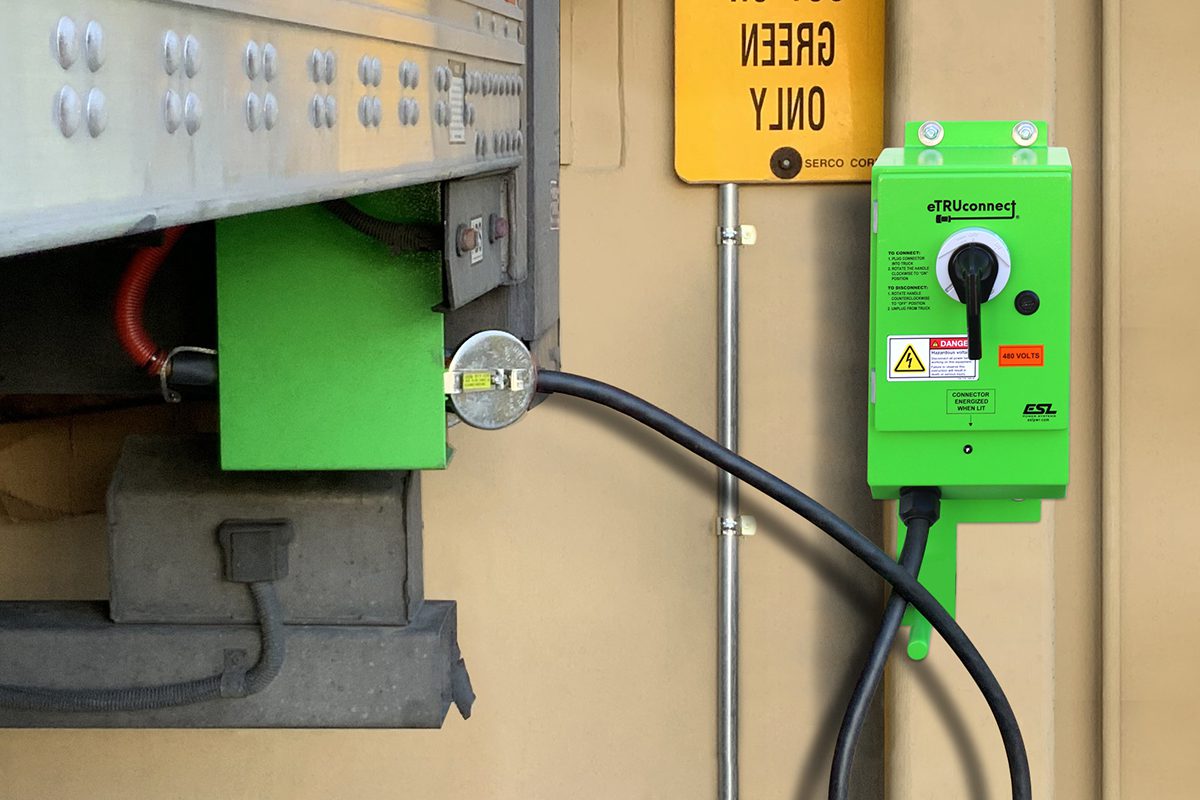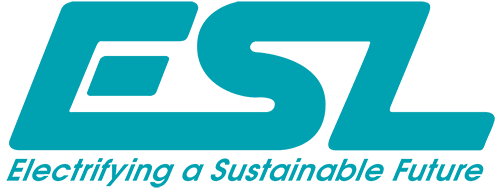Zero-emission technology goes beyond the trucks that are continually evolving to cut commercial vehicle emissions from the atmosphere. The solution providers that are trying to find even more ways for reducing emissions beyond the cab have their work cut out for them, as there are only so many components to a commercial vehicle.
Fleets in California (and possibly thereafter in other parts of the country) have a new technology available to them to further reduce emissions — electric transport refrigeration units or eTRUs. An upcoming regulation from the California Air Resources Board (CARB) will not only support the use of this technology, it will require it.
“The new CARB rules will affect all fleets that have a presence in California, even if they are based in another state,” said Bill Hallemeyer, Sales Development Coordinator at ESL Power Systems. “Owners of refrigerated warehouses and distribution centers, grocery stores, seaport facilities, and intermodal railyards, referred to as ‘applicable facilities,’ are required to register with CARB, pay fees every three years, and report all TRUs that operate at their facility.”
Beginning on December 31, 2023, at least 15% of their fleets’ diesel-powered TRUs that operate in California will have to be converted to zero-emission technology. This will continue for the next seven years, allowing for the conversion of all TRUs to eTRUs by the end of December 2029. But the regulation also looks to regulate OEMs as well. eTRU manufacturers will be required to provide comprehensive warranties for their products and establish authorized service and repair facilities within the state to perform warranty-covered repairs.
Taking the Right Steps Now
Like many of the recent emission-related regulations affecting commercial fleets, it will take time to comply, even with the seven-year window provided by CARB’s rule. Fleets must start now to be on track to meet the first deadline in less than a year, and eTRUs are only the first step — they need a zero-emission shore power source to keep them running on site.
“Fleet managers are looking for a safe, sustainable solution to reduce their carbon footprint and save money,” said Hallemeyer. “Connecting electric or hybrid refrigerated units to ESL’s eTRUconnect truck-trailer shore power eliminates the need of running on board diesel generators/engines to keep the cargo within the optimal temperature range. For each gallon of diesel fuel burned, 22.38 pounds of CO2 are produced. This means that for every hour a TRU is plugged into ESL’s solution versus idling on diesel, the fleet will avoid producing approximately 20 pounds of CO2.”
On average, a fleet will see a reduction of millions of pounds of CO2 each year by utilizing the eTRUconnect, not only assisting in emission reduction but resulting in significant savings attributed to lower energy and maintenance costs.
As the first approved manufacturer of eTRU docking stations for Southern California Edison’s (SCE) Charge Ready Transport Program, ESL is also well versed in available funding opportunities for fleets.
“In addition to SCE’s infrastructure programs, CARBs Clean Off-Road Equipment Voucher Incentive Project (CORE) features a streamlined voucher process for buyers to receive funding to offset the adoption costs of clean, commercial-ready zero-emission equipment including transport refrigeration units, cargo-handling equipment, and more,” said Hallemeyer. “CARB is also offering eligibility opportunities to offset electricity costs through the Low Carbon Fuel Standard Program, which is designed to encourage the use of cleaner low-carbon fuels in California, encourage the production of those fuels, and therefore, reduce greenhouse gas emissions. With the current incentives available, an eTRUconnect installation can pay for itself in as little as one year.”
Electrifying for the Future
A perfect use case for eTRUs, Southern California-based Rockview Family Farms already has a strong foothold in their electrification journey. The family owned and operated fluid milk operation currently owns two electric tractors, 25 electric forklifts, and 75 electric pallet jacks.
“We are in California where regulations are a big part of the consideration in going zero emission,” said Ismael “Itch” Vargas, fleet manager for Rockview Family Farms. “We also need to reduce the noise in our yard. Going electric is a great option because of the fairly short routes we run. We are located centrally in the Los Angeles area and most of our customers are pretty close to us, so range is not an issue.”
Through SCE’s ChargeReady Transport program, the dairy was able to install a large portion of their infrastructure at no cost, only needing to cover the purchase of the ESL eTRUconnect outlets. The units have reduced the amount of diesel the company purchases, and Vargas has also seen maintenance costs drop, since the TRUs do not need to use an onboard diesel generator as much.
“We also receive carbon credits from the California Air Resources Board for running our TRUs on electricity instead of diesel,” he added. “Having our refrigerated truck TRUs run on electricity while in the yard helps us save money, reduce noise, and of course reduce emissions. We are excited about the transition to electricity on the TRUs and looking forward to a low carbon future.”
To learn more about ESL’s zero-emission eTRU solution, schedule a meet with us at ACT Expo 2023 from May 2-4 at the Anaheim Convention Center, Booth #5305 or visit etruconnect.com.



